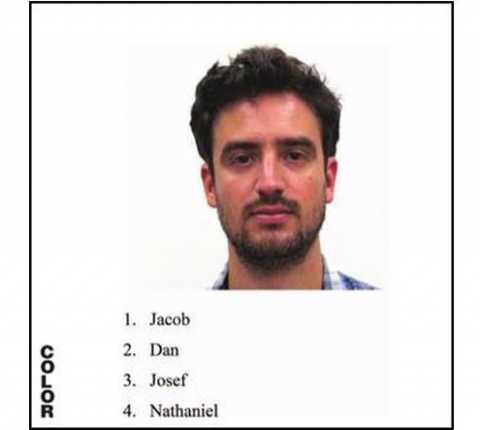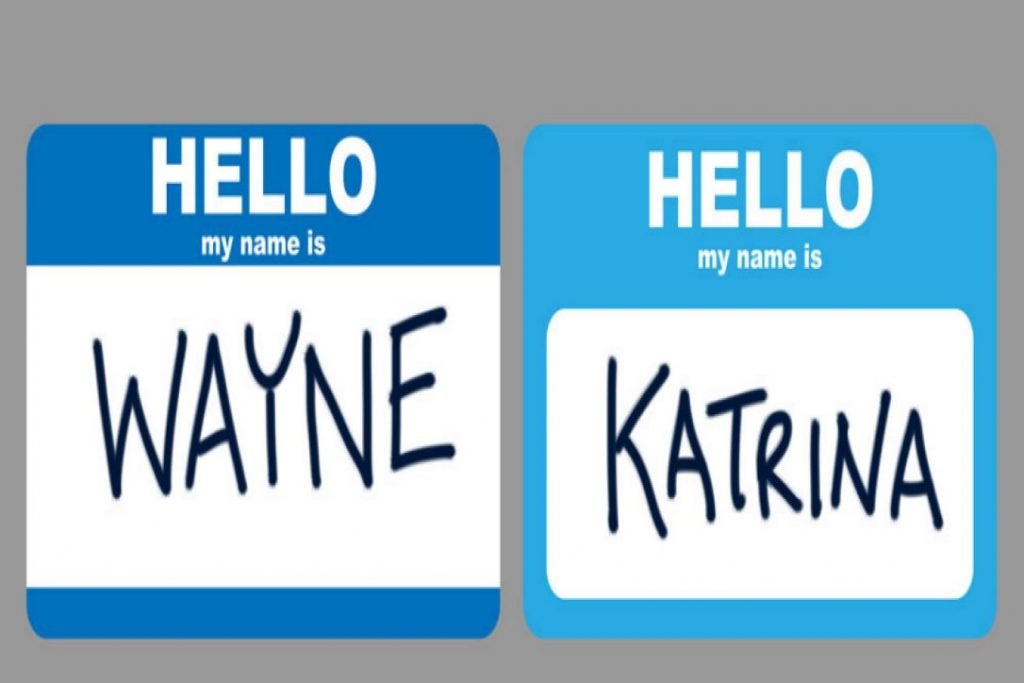“What’s in a name?” William Shakespeare famously wrote. “That which we call a rose by any other name would smell as sweet.”
No offense to Shakespeare, but a new study by Israeli researchers suggests that a person’s name can indeed influence how they look.
Led by Dr. Ruth Mayo and PhD candidate Yonat Zwebner, researchers at the Hebrew University of Jerusalem examined whether a person’s appearance can be influenced by their given name. To do this, they recruited independent observers and showed them color headshot photographs of complete strangers. Then they presented them a list of names and asked them to choose the stranger’s real name based on his or her facial appearance.
In a series of studies reported last week in the Journal of Personality and Social Psychology, the participants repeatedly beat the odds of correctly identifying a person’s name based on their facial appearance alone. For example, upon looking at one particular face and considering four possible name: Jacob, Dan, Josef or Nathaniel, the observers correctly chose “Dan” 38 percent of the time, significantly above the 25 percent chance level of a random guess. This effect held true even when the researchers controlled for age and ethnicity, implying that something more than simple socioeconomic cues are at work.

Photo: Hebrew University/Journal of Personality and Social Psychology
A self-fulfilling prophecy
“Our research demonstrates that indeed people do look like their names,” Dr. Ruth Mayo, senior lecturer in the Department of Psychology at the Hebrew University of Jerusalem said in a statement. “Furthermore, we suggest this happens because of a process of self-fulfilling prophecy, as we become what other people expect us to become.”
SEE ALSO: Study Reveals You May Be Much Younger (Or Older) Than You Think
Supporting the notion of a self-fulfilling prophecy, the researchers found that observers beat the odds of correctly guessing a person’s name even when they were only allowed to see their hairstyle. This suggests that people may choose the hairstyle that fits a stereotype associated with their name.
Tougher to match: Other cultures, nickname users
The researchers confirmed that observers in a second country and culture were also able to beat the odds. However while observers were good at matching faces to names in their own culture, they were not good at doing so in a foreign culture. This supports the idea that name stereotypes are important when matching faces with names.
The researchers also found that observers are less good at guessing the given name of people who use a nickname exclusively. This indicates that a person’s appearance is affected by their name only if they use it, and not if it simply appears on a birth certificate.
Computers can match names to faces too
Sign up for our free weekly newsletter
SubscribeIn one study, the researchers completely removed the human factor from the matching process. Using a computerized paradigm, they found that computers were able to beat the odds when asked to choose the correct name for 94,000 different faces. This further supports the idea that our faces contain relevant information related to our names.
The Dorian Gray effect?
The researchers have suggested that the “Dorian Gray effect,” cited in previous research on how internal factors like personality can influence facial appearance, may apply here as well. Dorian Gray was the protagonist of an Oscar Wilde novel whose actions affected his portrait.
“We are familiar with similar processes from other stereotypes like race and gender, where many times the stereotypical expectations of others affect who we become. We hypothesize that there are similar stereotypes about names, including how someone with a specific name looks, and these expectations really do affect our facial appearance,” Dr. Mayo said in a statement.
Social structuring begins when you are given a name
According to the researchers, the possibility that our name can influence our look, even to a small extent, suggests the important role of social structuring in the complex interaction between the self and society. The research suggests that we are subject to social structuring from the minute we are born, not only by our gender, ethnicity, and socioeconomic status, but also by the simple choice that others make in giving us our name.
“A name is an external social factor, different from other social factors such as gender or ethnicity, therefore representing an ultimate social tag. The demonstration of our name being manifested in our facial appearance illustrates the great power that a social factor can have on our identity, potentially influencing even the way we look,” added Dr. Mayo.
SEE ALSO: Your Body Reveals How You Feel Better Than Your Face
Future research could examine the precise nature of the mechanism leading to the emergence of this face-namematching effect, for example how a person’s name matches his or her face at different stages of life. Another question worth exploring is why some people have a very high face-name match while others have a low match.
In any case, following this study we may have to reconsider Shakespeare’s question, “What’s in a name?” Apparently, the answer is – everything.
Photos: Hebrew University of Jerusalem, Pixabay
Related posts

Rehabilitation Nation: Israeli Innovation On Road To Healing

Israeli High-Tech Sector 'Still Good' Despite Year Of War








Facebook comments